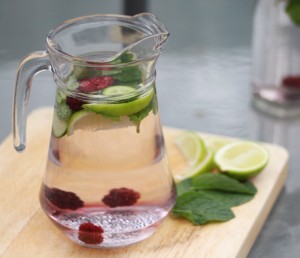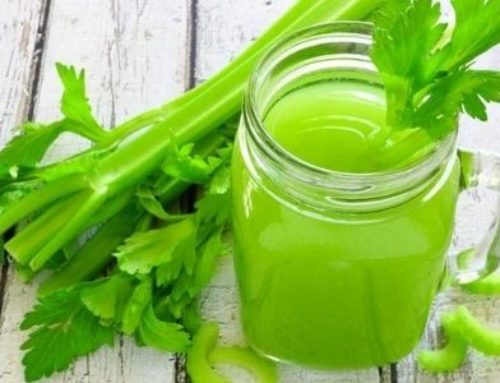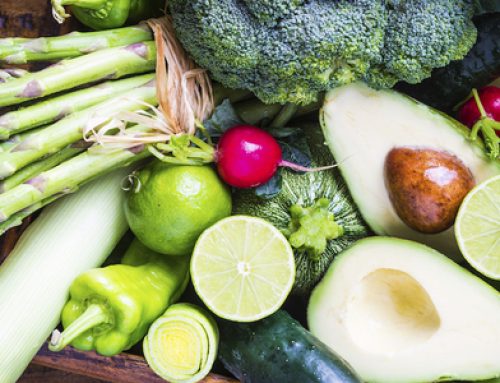
Think of your immune system as a microscopic defence force for your body. It’s mission (should it choose to accept it … and it better) is to protect peace and harmony within your body by seeking out and destroying harmful invaders.
The enemy = pathogens: bacteria, viruses, parasites, chemicals and toxins and sometimes even your own cells that have gone rouge. In order to keep these enemies at bay, your body had several
First line of defence: physical borders and barriers
Skin – Your skin is an airtight, waterproof barrier against disease. Your skin ensures that any potential enemy pathogens can only enter your body from a select number of checkpoints (e.g. nose, mouth, eyes, etc). It is like Australia being totally surrounded by water and only having a few sea and air ports.
Mucus membranes – If an enemy pathogen does manage to find its way to an entry point your body produces another barrier to prevent that pathogen from infecting your cells: the sticky fluid, mucus It traps invading pathogens or flushes them out of your system . Saliva, boogers, tears and urine are good examples
Chemical barriers – Your body also creates a number of chemicals that help to destroy invading pathogens. These include antibiotic enzymes in your saliva and tears and gastric juices in your stomach
Infantry: innate immune system
The Australian Defence Force defines the role of the Infantry as “to seek out and close with the enemy, to kill or capture him, to seize and hold ground and to repel attack”. This is exactly what your innate immune system does.
Inflammation – Inflammation aims to eliminate the enemy pathogen by signalling pathogen fighting cells, leukocytes, to come together at the site of invasion. The leukocytes fight the enemy pathogen by attacking it with enzymes or by engulfing the pathogen and destroying it. Signs of this sort of inflammatory battle includes redness, swelling, pain and heat.
Special Forces: adaptive immune system
The problem is, the innate immune system is not very good at telling one enemy pathogen from another. Luckily we have the adaptive immune system which is the elite, best-of-the-best fighters against disease. They study the enemy pathogen on first contact so that, if the body is ever re-exposed to the same enemy pathogen, we can mount a full scale, targeted attack.
The special forces are made up of cells called lymphocytes (T cells and B cells). Lymphocytes have the ability to differentiate between allies or enemies. If the lymphocyte identifies a cell to be an enemy pathogen it will mount a pathogen specific attack.
After fighting an enemy pathogen, lymphocytes (the SAS of the immune system), log a memory of that pathogen and if it ever invades again the lymphocytes remember exactly how to fight and destroy it effectively. This memory is the basis of vaccinations.
Inventory and munitions: nutrition.
Think of the nutrients in food as the weapons and the resources that the army needs to function effectively. There are range of nutritional weaponry that our immune system requires and without an adequate stockpile of these, your body’s defence force becomes weak and you become susceptible to disease.
Protein
Proteins are the building blocks of our whole body and all of the layers of our body’s defence system are made from proteins. For instance, you need protein to build and repair your skin, the first line of defence. Without adequate dietary protein, damage to this barrier such as a scratch or cut, would take longer to rebuild and would allow more time for an enemy pathogen to invade.
Protein is found in meat, poultry, seafood, eggs, dairy and their respective products. It’s also found in legumes (beans, lentils, chick peas), whole grains, nuts and seeds.
Quick tips:
- have a boiled egg with breakfast or as a snack at work
- add a four bean mix to your lunch.
- pour some lentils or beans into your warm winter soup. Try our hearty pumpkin soup.
Water
Water helps your kidneys remove chemical toxins from the bloodstream. It also aids in the production of mucus to trap and flush out enemy pathogens. What’s more, water is involved in the production of lymph. Lymph and lymphatic vessels carry nutrients from the blood to individual cells. Lymph also carries your infantry (leukocytes) and special forces (lymphocytes) to and from the site of an invasion. Being well hydrated is vital for these processes to happen effectively.
Quick tips:
- drink a glass of water with each meal and snack
- flavour your water with fresh fruit, cucumber or mint. Try our infused water jug recipe.
Vitamin C
Vitamin C plays an important role in our infantry, our innate immune system. It helps the leukocyte soldiers to engulf and destroy enemy pathogens.
Very high levels of vitamin C are found in red capsicum, oranges, kiwi fruit, grapefruit, broccoli and moderate amounts in most other fruits and vegetables.
Quick tips:
- pack 2 pieces of fruit for lunch each day
- make half your plate vegetables at lunch and dinner
- chop up some capsicum sticks to have with hummus at afternoon tea
Vitamin D
Regular, adequate vitamin D helps to improve our physical barriers, particularly our chemical barriers. Vitamin D helps to create a chemical called cathelcidin, an anti-microbial peptide, which helps to neutralise invading enemy pathogens in our nose, throat and lungs.
Getting outside every day is a the most effective way to ensure that you have adequate vitamin D. 10 minutes of sun exposure to your hands and face during 11am and 2pm is sufficient for the majority of the population to meet their requirements for vitamin D.
Food sources of vitamin D include oily fish such as salmon, tuna and mackerel and fish liver oils. Many foods including milks, yoghurts, juices and cereals are fortified with vitamin D to help people reach their requirements.
Quick tips:
- take a quick walk outside in your lunch break
- plan a fish dinner once a week
Vitamin A
Vitamin A may be important for the training and development of your special forces, your lymphocytes. A deficiency in Vitamin A has been linked to an imbalance of lymphocytes and poor signalling between lymphocytes
The richest source of vitamin A is pan-fried beef liver. If this doesn’t appeal or you’re vegetarian, sweet potato is also high in Vitamin A. Other vegetables that have lower amounts of Vitamin A but are still a good source to include in your diet include spinach, carrots, rock mellon & red capsicum.
Quick tips:
- make sweet potato mash instead of white potato
- chop up a carrot to have with a sweet potato dip as a snack
- include an orange vegetable with every dinner
Zinc
Zinc plays a vital role in cell division. Both your infantry and special forces need to multiply quickly in the event of pathogen invasion. Inadequate zinc intake has been linked to a suppressed immune system.
The best food sources of zinc are meat, fish and poultry as well as cereals and dairy foods.
Quick tips:
- have a 200g tub of yogurt as a snack each day. Try our yoghurt parfait recipe.
- include red meat for dinner 2-3 times a week. Check out some of our dinner recipes.
- use chicken or tuna in your lunch sandwich.
Resveratrol
This little known food chemical helps to activate members of our Special Forces called Natural Killer Cells (great name for a immune cell if you ask me). Resveratrol also increases a the number of signalling chemicals, called cytokines, which alerts the Infantry and Special Forces to join a battle against an enemy pathogen.
You can find resveratrol in the skins of fruits such as grapes, blueberries, raspberries and mulberries. Resveratrol can also be found in peanuts, red wine and dark chocolate.
Quick tips:
- adding blueberries or raspberries to your morning porridge or cereal
- a handful of red grapes as a snack 1-2 days a week
- when including chocolate in the diet opt for dark chocolate
Overall the key is moderate amounts of meat, fish, poultry and dairy and lots of fruit and vegetables!
If you’d like further help with your nutrition please click below:
]





